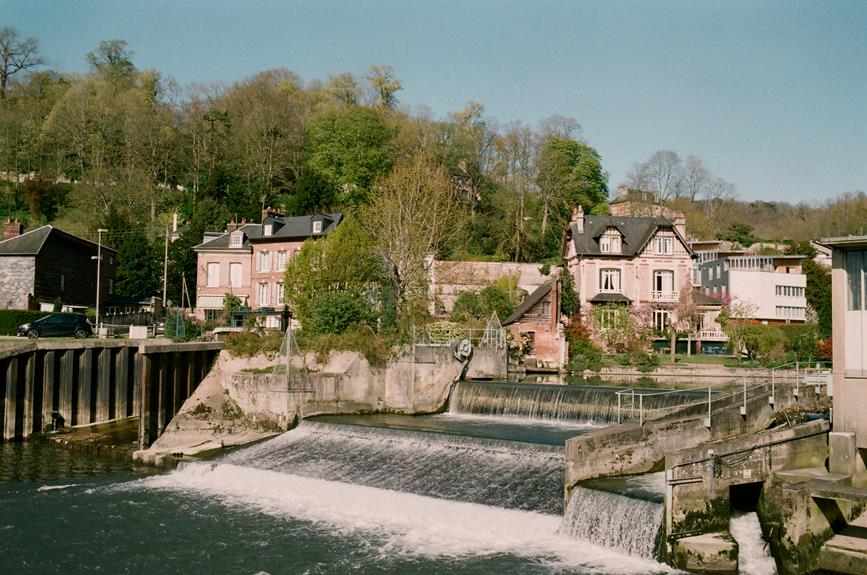Hydroelectric power plants are an unbelievably powerful source of energy. You may already know the basics, but what about the advantages and disadvantages?
Let's explore the incredible potential of hydroelectric power, as well as the obstacles that stand in its way.
With a little bit of knowledge, you'll be well-equipped to make an informed decision about hydroelectric power.
Advantages of Hydroelectric Power
You can reap the benefits of hydroelectric power.
It's a renewable energy source, meaning it's naturally replenished and can be used indefinitely.
Furthermore, it has a high energy storage capacity, allowing it to be used in times of peak demand.
Hydroelectric power is also cost-effective, eliminates the need to transport fuel, and produces no air pollution.
It's an efficient and reliable source of energy that will help liberate us from non-renewable energy sources.
Disadvantages of Hydroelectric Power
Although hydroelectric power has many advantages, it also has some disadvantages. These include:
- Environmental:
- Damaged ecosystems
- Water rights
- Economic:
- High cost of construction
- Dependence on water levels
- Social:
- Displacement of local populations
- Inaccessibility to areas without infrastructure.
Hydroelectric power can be beneficial, but it also brings with it challenges that must be navigated correctly to ensure the benefit outweighs the cost.
Environmental Impact of Hydroelectric Power
The environmental impact of hydroelectric power can be significant, but there are ways to reduce it.
Innovative renewable energy sources like hydroelectric power can be beneficial to the environment, but can also create water shortages. Thankfully, there are ways to reduce this effect, such as reducing the dams' size, using dual-purpose dams, and improving water management.
Hydroelectricity offers a clean, renewable source of energy, but its impact on the environment must be managed. By using creative solutions and taking proactive steps, hydroelectric power can help to achieve liberation.
Cost of Hydroelectric Power
Interestingly, hydroelectric power is often seen as a cost-effective energy source. It has many advantages when it comes to lowering costs, such as:
- Generation Costs:
- Low upfront construction costs
- Low operating costs
- Low fuel costs
- Maintenance Costs:
- Low labor costs
- Low equipment costs
- Low repair costs
The advantages of hydroelectric power make it an attractive option for those seeking to liberate themselves from high energy costs.
Regulations and Restrictions Around Hydroelectric Power
You must consider the regulations and restrictions around hydroelectric power before investing in it. Water rights, conservation policies, and other environmental regulations may limit its potential.
To maximize potential, you must consider the limitations of water resources, environmental regulations, and other land use restrictions.
With a careful analysis of these limitations, you can make sure you're within the law and maximize the benefits of investing in hydroelectric power.
Frequently Asked Questions
What Are the Long-Term Impacts of Hydroelectric Power?
You can enjoy the economic benefits and environmental sustainability of hydroelectric power over the long-term. It is an efficient, renewable energy source with minimal environmental impact. With careful planning, it can bring economic growth and environmental liberation.
What Are the Safety and Maintenance Requirements of a Hydroelectric Power Plant?
You must ensure protection of hydroelectric infrastructure and energy storage to maintain a safe and efficient operation. Be creative and analytical in your approach to liberation.
How Does the Location of a Hydroelectric Power Plant Affect Its Efficiency?
"Location is key for a hydroelectric power plant: water supply and environmental impact can significantly affect its efficiency. 'Where you stand depends on where you sit' – so choose wisely!"
Are There Any Renewable Energy Alternatives to Hydroelectric Power?
You can explore renewable energy alternatives to hydroelectric power, such as wind power and solar energy. These technologies offer liberation from traditional energy sources, and provide creative solutions for sustainable energy production.
What Is the Public Perception of Hydroelectric Power?
The public perception of hydroelectric power is often a mixed bag, but strong community engagement and environmental awareness can help create a liberating, sustainable future. With creative solutions and a keen eye on the impact we make, we can work together to create a better world.
Conclusion
Hydroelectric power is a complex yet powerful source of energy. While it has its drawbacks, the advantages certainly outweigh the disadvantages.
With careful regulation and consideration of environmental impact, hydroelectric power can be a reliable and clean source of energy for many years to come. It may be a powerful river, but with the right guidance it can be a powerful energy source, too.






